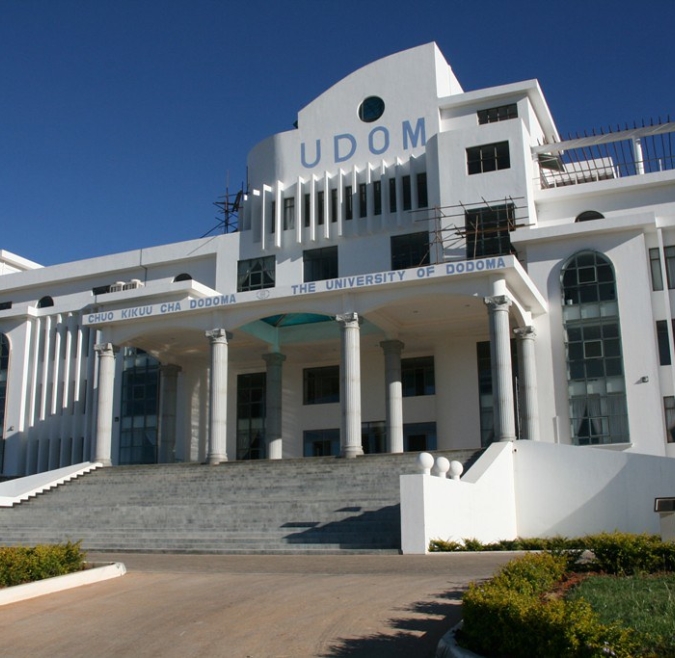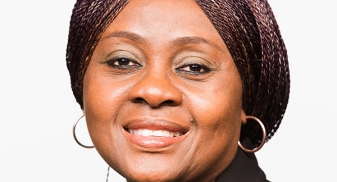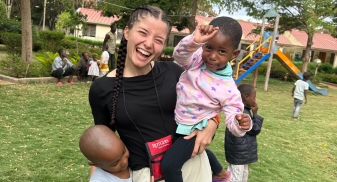Winter: Rutgers- Global Health Practicum in Tanzania
The Program
Your skills as a healthcare provider are sure to sharpen with this curriculum of intensive clinical work in hospital and clinic settings, combined with language and cultural studies in the vibrant city of Dodoma.
Learn about healthcare delivery through close observation of healthcare faculty and professionals in a global setting. Engage in discussion and field-based learning with faculty and students from the school of nursing at the University of Dodoma. Explore Tanzania's natural beauty on an overnight stay in a national park.
Program Location

Dodoma
Dodoma is the official capital city of Tanzania, and home to two major universities. Located in the center of the country, it is connected by a major highway to Dar es Salaam, the country's largest city and commercial center, which lies about 300 miles to the east. Dodoma has a population of just over 400,000 people, roughly a tenth of whom are university students. (Flights will arrive and depart from Kilimanjaro International Airport (JRO).
Academics
The course is designed as an elective for Nursing students, but is open to students from other health professions. However, qualified applicants must be approved by the program director based on demonstrated interest in global health issues. Global Health (705:652) elective course and Epidemiology (705:698 or a similar course) are recommended. This course counts as a General Elective (not Nursing Elective).
To view the program’s 2020 syllabus, please click here . Please note this is a sample syllabus, all of its content is subject to change.
This three-credit guided practicum experience is designed to introduce graduate and advanced undergraduate students in nursing and other health professions to health care delivery in a global setting. Accompanied by a standing faculty member in the School of Nursing, students will experience health care delivery in host country facilities, such as clinics and hospitals, and engage with professional health workers in both hospitals and community-based settings. Students will meet regularly with the course instructors for reflection on their course readings and field experiences.
Class meetings will begin during the second half of the fall semester, and will be comprised of 2-3 seminars leading up to the 16 day field experience in Tanzania, as well as a mandatory debriefing meeting upon return to the US.
A typical itinerary for the in-country portion of the program will include a daily session on the culture and health of the host country, along with a language class with an emphasis on health related vocabulary. Students will spend 3-4 hours daily in a clinical setting, such as a hospital or clinic, and each week ends with a seminar where students will reflect on their experiences. Weekends may include excursions to cultural sites, time with fellow students and opportunities to explore the local area.
For information about Study Abroad credit transfer, registration, and transcripts please visit the Academics section of our website.
Housing and Meals
Students will be housed in hotels in Arusha and Dodoma. Breakfasts and most dinners will be included at all accommodations, and several group lunches and dinners will also be included during the group excursion in Arusha.
Financial Information
Program Costs
| Program Cost | NJ Resident | non-NJ Resident |
|---|---|---|
| Undergraduate | $2,730 | $3,190 |
| Graduate | $3,060 | $3,460 |
Program Cost includes:
• Tuition
• Housing
• Most meals
• Excursions
• National Park Entry Fees
• Safari
• Administrative Fees
• Emergency Medical Access Abroad
* The winter session student fee is not included in the program cost above.
Out-of-Pocket Costs
| Airfare | $2,000 |
| Multiple Entry Visa | $100 |
| Additional Meals | $100 |
| Personal Expenses | $150 |
| Total | $2,350.00 |
Out-of-Pocket Cost includes:
The above costs are estimations and represent the known out-of-pocket costs students encounter during their time abroad.
Some of these expenses will be paid for prior to going abroad, such as an airline ticket and visa costs, while some of these expenses, such as meals and local transportation, will be paid in-country as part of your daily expenses. As you plan, you will need to budget these costs and spend wisely throughout your time abroad.


